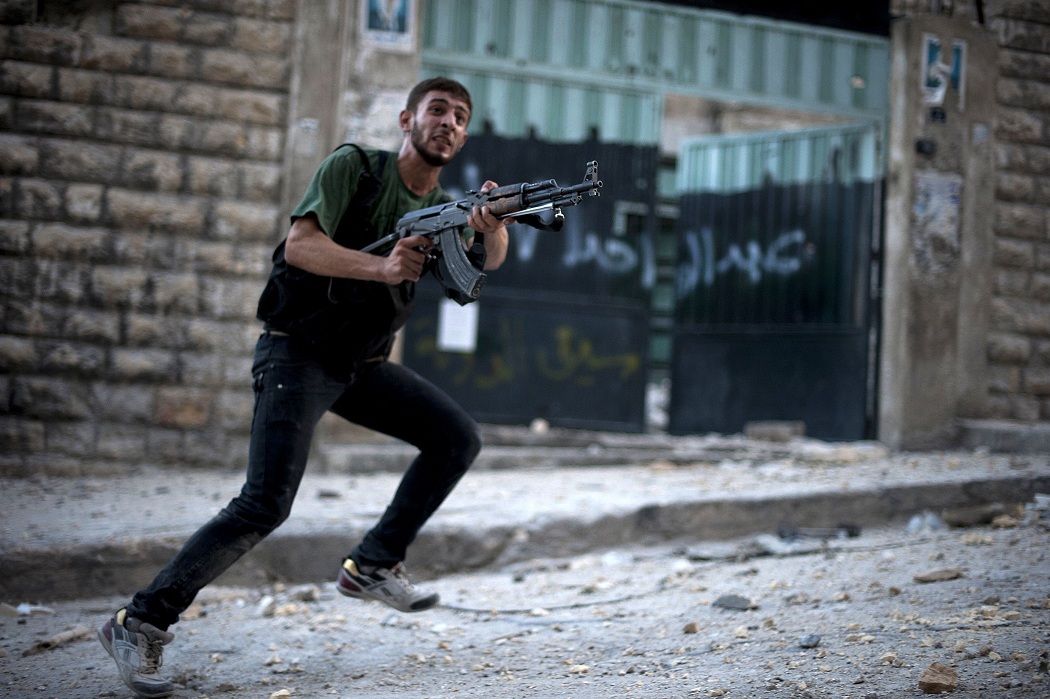One of the most notable misconceptions about British foreign policy over recent months is that with a change in government, our long-standing commitment to support the Iraqi people has gone out the window. Many reports on the British departure from Basra Palace seem to be working on the presumption that this was the end of the road for the British in Iraq. This is not true.
This latest step is in line with efforts going back months to create the necessary conditions in the province of Basra for it to be formally handed over to the Iraqis. The handover of Basra Palace in no way marks the end of the process, but it certainly signals our confidence that we are on the way towards that goal.
We have always refused to set out an artificial timetable for withdrawal from Iraq on the principle that this process should happen when Iraqis are ready to take over these responsibilities.
The training of the Iraqi Security Forces has been a key task of UK forces and we will continue to work with the Iraqis and the coalition to improve capacity where needed. We also welcome Petraeus s findings that sectarian violence across Iraq has fallen over the last eight months. This is good news and we congratulate the Iraqi and coalition forces that have sacrificed so much to bring this about.
Petraeus s report also highlighted the huge differences in security levels and the kinds of challenges in different parts of the country. It is these qualitative differences which mean that Britain is moving towards being ready to hand over Basra, while certain other regions will continue to require a coalition presence.
I am often asked why Britain is preparing to hand over responsibilities and gradually reduce its number of troops, while elsewhere the Americans have been intensifying their levels of engagement.
The simple answer is that Basra is not Baghdad. Basra has largely been unscathed by the appalling violence between Sunnis and Shias, and although some Sunnis left the city following the increase in tensions after the last year s Samarra Mosque attack, many of them subsequently returned. Neither is there a meaningful presence from Al-Qaeda or Baathists.
Britain s approach has been to train Iraqis, who best understand the dynamics of their own localities, to take the responsibility of tackling these tensions themselves. These UK efforts have resulted in a total of more than 20,000 Iraqi Police Service students trained in basic and advanced policing skills by our forces.
After four years of training, Iraqi forces are now planning, preparing and leading their own operations. Far from being bogged down and over-stretched, these increasingly capable forces from the southern regions have frequently been deployed further north where the need is greatest.
Britain has handed over three other provinces to the Iraqis. If – and when – they have needed our support, we were ready to step in and assist. However, when there were disturbances in the province of Al-Amarah, though we were put on high alert, UK forces were not needed because Iraqi forces were able to handle the disturbances on their own.
A similar situation will hopefully exist when Basra is handed over to the Iraqis. Our troops will remain in Iraq for some time to provide support if needed, but we hope that as with the other provinces, the Iraqi forces can operate without us. Our troop levels have decreased gradually from 44,000 to approximately 5,000, reflecting the decreasing demands on these troops.
It is also vital to recognize that the solution to the challenges in Iraq is not a purely military one. A politically and economically strong and united Iraq will be much more resistant to the destructive narrative of terror and violence. The UK has invested heavily in rebuilding the crippled infrastructure in these provinces and this commitment will continue long after Basra has been fully transferred to Iraqi control.
In order to continue moving towards greater stability, democracy and prosperity, Iraqis need to know that they have the long-term support of the UK. There are still huge challenges ahead and in parts of the country the violence continues. The aim must be to encourage and help the Iraqis to establish stability and increase development in order to allow refugees to return and contribute their skills and energy towards rebuilding their homeland.
At the same time, it has never been more important that we reiterate Britain s commitment to stand alongside the Iraqis in their aspiration for a brighter and better future.
Dr. Kim Howellsis the British Foreign Commonwealth Office Minister. This article is distributed by the Common Ground News Service (CGNews) and can be accessed at www.commongroundnews.org.

